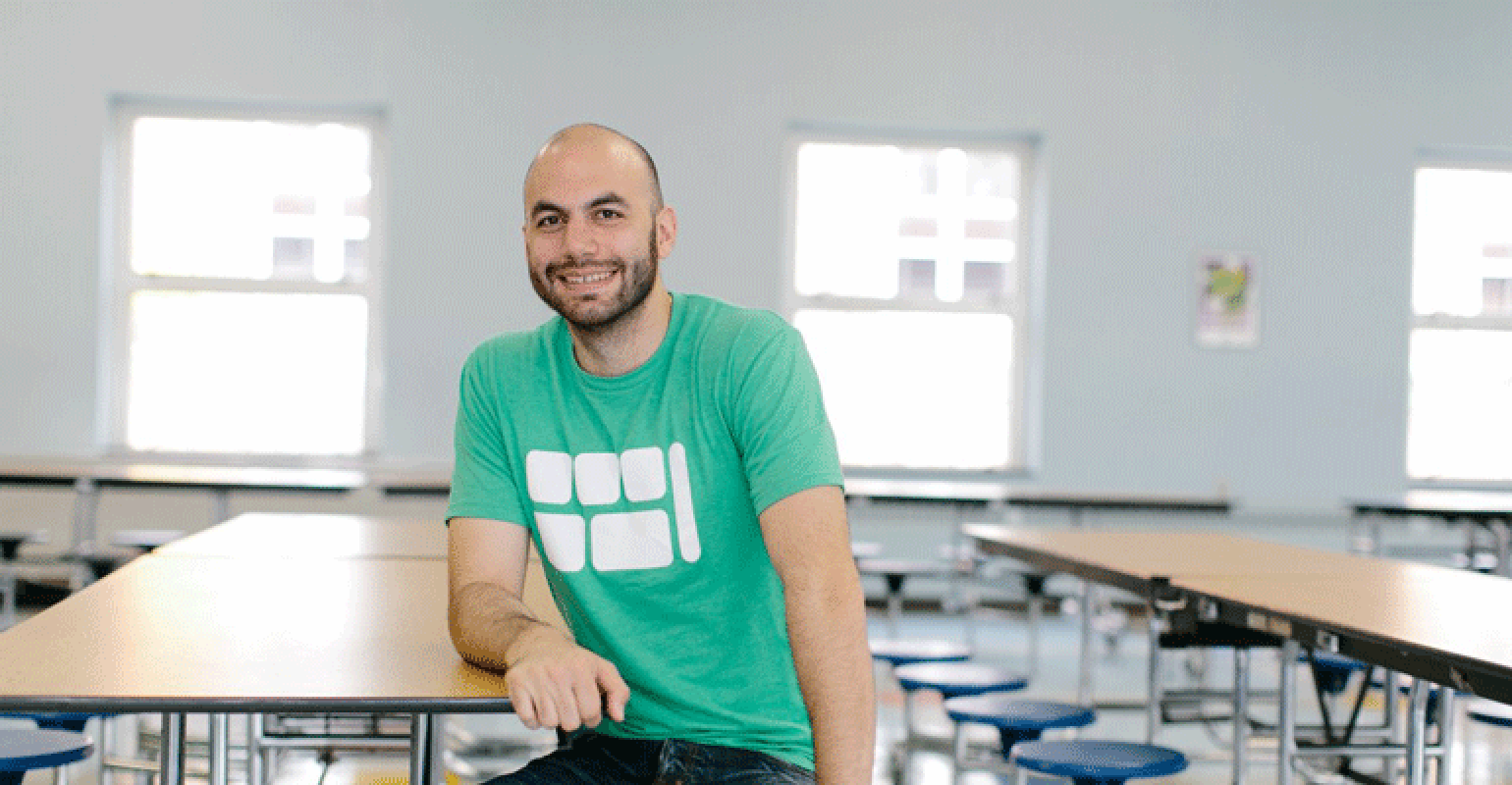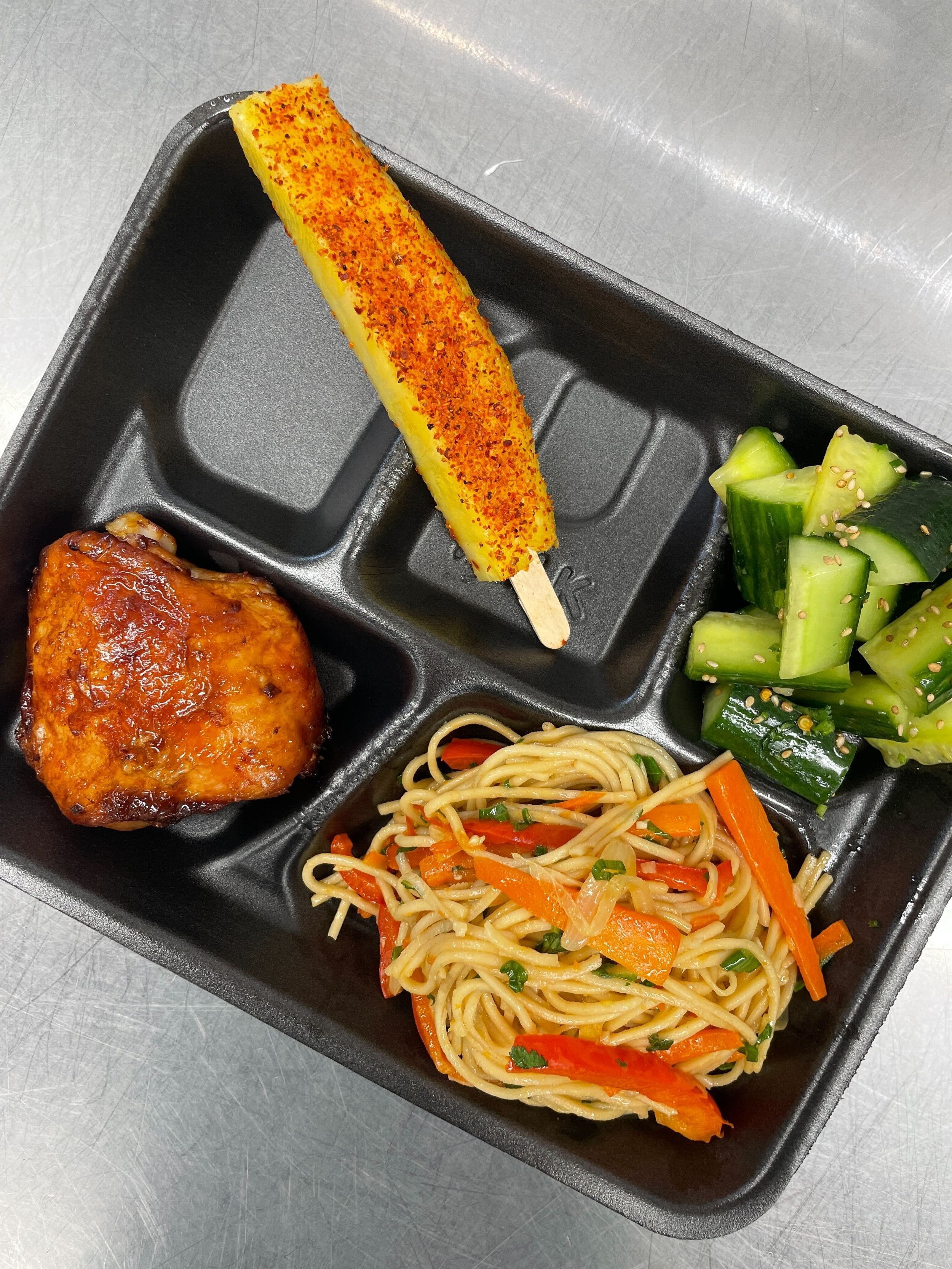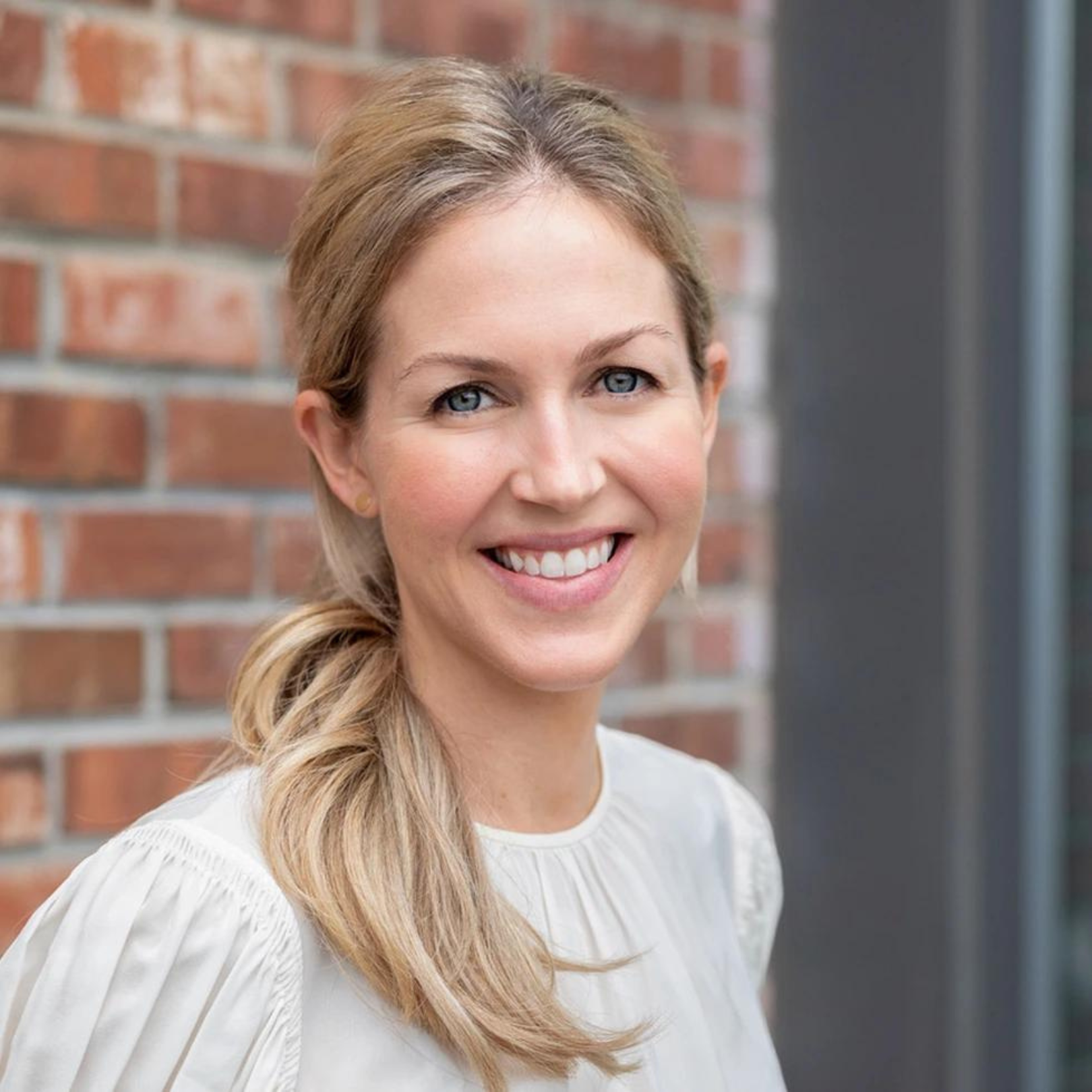From Noma to the Cafeteria
Taking on institutional food service with Brigaid founder, Dan Giusti
Growing up in a big Italian family in southern New Jersey, Dan Giusti always knew that he wanted to be a chef. He would watch in awe as his aunt jarred tomatoes and cooked impressive meals, so he secured a job at a local restaurant as soon as he could. “I loved working in a restaurant kitchen,” he remembers. “I thought it was the coolest environment. It was busy. The pace was amazing. So I applied to the Culinary Institute of America, got in, and then that was it. I really never considered another career.”
After graduating, Dan cooked at Restaurant Guy Savoy in Las Vegas, 1789 in D.C., and Noma in Copenhagen before he built up the confidence to leave the restaurant industry and put his culinary skills to use in a more unexpected way. He launched Brigaid, a company that places chefs into institutional food service programs like public schools, senior centers, and state prison systems, seven years ago.
At Brigaid, Dan uses his fine dining experience (especially the caring, thoughtful hospitality he learned at Noma) to help institutional food service programs achieve their goals. He and his team evaluate the current condition of the programs and devise strategies to enhance them, whether that means adding from-scratch items to the menu or simply improving the way a pre-made dish is reheated. Then, Brigaid chefs come into the kitchens to implement these plans.
“In a lot of cases, institutional food is not excellent,” Dan admits. “Usually that is attributed to the people that work in it—but I think it's the opposite. Institutional food is the way it is because of the people who choose not to work in it. Specifically, a lot of chefs don't work in the space. There are a lot of really great people who've dedicated their lives to feeding people and they get no credit. It's so difficult to make food delicious in these spaces.”
Here, Dan explains how Brigaid is helping make institutional food more delicious, why meaningful change takes time, and what he envisions for the future.

Photography courtesy of Brigaid.
Mast Journal: What inspired you to start Brigaid?
Dan Giusti: I had worked in restaurants my whole career. The only job I've ever had is working as a chef. And I ended up working at this restaurant, Noma in Copenhagen. I was there for four years and I loved it. A lot of people think that I stopped working in restaurants because I didn't enjoy working in restaurants, but I always loved working in restaurants. But I got into cooking initially for different reasons. I didn't know much about fine dining or big time chefs when I got into cooking as a teenager. I just liked cooking for people and the idea of taking care of people through food is an important concept within my family. And being at Noma for a few years finally gave me the confidence to really look at what I wanted to do.
I realized I wanted to find a way to cook for as many people as possible and cook for people who really needed it. I went to culinary school when I was 18, so I didn't really have the confidence to think along those lines at the time. There's not a lot of folks in culinary school saying, ‘I want to go cook in a school.’ So it did take a while for me to have the confidence, but finally I had it. And once I decided that's what I wanted to do and I didn't see the avenue to do it, I decided to start a company to figure out how to do it myself.
MJ: That's awesome. And do you cook in any of the institutions that you place chefs into?
DG: I definitely did, more so before. We're seven years into it now, so I do spend a good amount of time in kitchens, but it's usually not in the capacity of cooking. A big part of the work that we do is what we refer to as an assessment, which means that we visit every kitchen in the institution. If it's a school district, we'll go to every single kitchen in that school district. That could mean visiting a hundred plus kitchens. So I do spend a lot of time in the kitchens, especially with new partnerships, trying to get the gist of what's going on. But in terms of cooking, I definitely am not doing a tremendous amount at the moment.
MJ: Totally. It’s similar to the way an executive chef doesn’t cook as often as when they were a line cook.
DG: Yeah. So much of the work that we do is relationship-based. We are an outside organization, a group of chefs, and we are coming in. And you can imagine there's some apprehension about that. So much of what I do is not just seeing how the operation's running and getting an understanding for myself, but also being there and saying, ‘Hey, we have no bad intentions. We're here to work with you, to collaborate with you.’ I show people who we really are. I do very much enjoy that aspect of the job, just getting to know our partners and meeting the folks that work in the kitchens.
MJ: That’s awesome. And what is the difference for the consumer? For the student or senior or incarcerated person who is eating food from a Brigaid kitchen?
DG: I just want to clarify that, when we place chefs, they're never in charge. It's not like we oversee operations. The food service programs are run by the institutions themselves. It's their program and we want it to be their program. We just want to help them get to where they're going. We are there to help them reach their goals. So every time we have a new partnership, it very much is based on the necessity of them having goals and being aspirational in terms of where they want to take their program.
When we place a chef in a smaller institution, whoever's eating might be able to see some changes quicker. But in some of the larger institutions we work with, like Denver Public Schools, there are 166 kitchens. And so change takes time. When we place a chef or multiple chefs in those places, the changes that will be perceived by the customer will take time. A lot of the changes that we are making initially are very much operational, so things that happen in the kitchens might not translate to very noticeable change immediately. And that's one of the hardest things that we encounter.
When we tell people that we place chefs into institutional food service programs, the perception is that everything has to be made from scratch. But it's not necessarily that. We meet these programs where they're at, and sometimes that means creating more food from scratch. Oftentimes it does. But sometimes it means taking an item that they're already serving, that kids enjoy and they're happy with, that’s a pre-made product and just tweaking the preparation process. We want the final product to be just that much better, so the customer does enjoy it that much more. A lot of the institutions are not really built to cook from scratch, so there's a lot of different results.
MJ: That makes sense! And are the Brigaid-placed chefs just working with the institutions temporarily? Or are they hired in permanent positions?
DG: It is a permanent position. If we partner with a school district, for example, we will go hire a chef in conjunction with the school district. That means they're a part of the interviews, even though that chef does work for us. We will place them for multiple years, usually at the least two years, but typically more than that. So it is a long-term position, recognizing that these changes do take a long time. Although they work for Brigaid, their job and responsibilities are ultimately to the institution.
These institutions have their own labor hierarchy and we don't want to disrupt that. We want people to feel good and secure about their jobs. For context, there are two major ways that an institution will operate their food service program, one of which is called self-operating, which means that they do it all themselves. The other is where they'll outsource their food service to a larger company. And oftentimes in those situations, a lot of the employees, if not all of them, end up working for that outside company, which I think can be pretty disruptive. It can cause some nervousness. If you work for a school district for 20 years and then suddenly an outside company takes over the operation and now you're an employee of them, it could be a little nerve wracking. So we don't want to disrupt any of that.
We place our chef into the district and, because I think we do a very good job of finding very good, respectful people, they do end up becoming a leader within that program. It's not to say that people don't look to them—they definitely do. They're just not technically in charge. But when it comes to the day-to-day operations within the kitchens, people do look to this person for advice. If you insert a professional, who carries themself the right way in terms of their personality and their character, people will generally gravitate to that person regardless if they're in charge or not.
MJ: Right. Got it! And how do you find these chefs who want to work in institutional food service? When they could work in restaurants or become a TikTok chef, why is this the path they choose?
DG: That's a great question. It's a big part of what we do and what we bring to the table for our partners. We have the ability to attract chefs that might've otherwise never considered working in institutional food. I do my best to leverage my background, having worked at Noma. I think it's a big reason why chefs know about us. We've gotten more press than the average chef that works in institutional food. That's a problem, but that's the nature of institutional food. A lot of great people out there are doing great work and nobody knows what they're doing because there’s just not an interest level.
But a big part of what we do is try to leverage my background to attract chefs and then also just try to generate interest about this career path in general. We want to show that it's a great career path. We pay very well. We have great benefits. We make it a great job. It's structured as a great job. We don't want chefs choosing to do this work solely because the schedule is better, because they don't have to work on weekends and they don't have to work on nights. That's not why we want people to choose this work. We want them to choose this work because they genuinely believe in the work that we do, but it is a perk.
There's a lot of people out there who genuinely like the idea of doing this work. And for me, it's a matter of breaking down some of those barriers. There are some barriers as to why they might not do this work. For a chef who has worked their whole life in restaurants, the idea of suddenly becoming an employee of a school district might seem a bit daunting or scary. But I think we're kind of a good segue to getting into this space because they're still working for a company. The company that they would be working for, Brigaid, is all chefs. It makes it a little easier to transition.
We are very scrutinizing in our hiring process. You can imagine we want to find people who are talented, who know how to cook, but the character piece is super important. You need people who really have no ego. We can't have chefs who can't collaborate and chefs who can't just drop the ego and help our partners move their operation forward. In institutions, you really are truly cooking for the people you're cooking for. If we're making food that we're happy about and we're excited about, but the people we're feeding aren't excited about it and don't choose to eat, then it's a really big problem.
When we're at the final stages of interviewing a chef, if I think someone has real promise, I tell them, ‘We can't just have chefs who are just excited about making scratch-cooked meals in schools. We need someone who's just as excited about that as they are about coming up with a better way to heat up this pre-made product.’ Those kinds of things really differentiate the people that are ready to get into this game or not. But they're out there. There's a lot of people out there and we've been very fortunate to find a really great group of people.

MJ: That’s incredible. Do you miss working in restaurants at all?
DG: I wouldn't say I miss working in a restaurant. Occasionally, I will be doing a dinner with a friend who's a chef and I definitely enjoy being in a restaurant and running around in the kitchen. I've always enjoyed that pace. But on a day-to-day basis, I don't miss it at all. I love what we do. I really believe in the work we're doing and I think that it's really worth all the work. There are days that don't go as planned, as is the case with anything, but this is the first time that, when the work gets really hard and things don't go to plan, I don't get frustrated and I really believe in it. I really think that it's worth it.
It's also a really big challenge. It's kind of a life's work in the sense of I could see working on this for the rest of my career and being extremely happy and satisfied with that because there’s a lot to figure out. They are big problems and they are big situations that span the whole country and beyond. We have conversations with people in different countries about institutional food. It's this thing that for whatever reason has been overlooked.
This idea of being a chef is pigeonholed into working in fine dining and it doesn't need to be. There are a lot of amazing careers out there beyond that. As we grow, it's neat to bring more chefs on board who start to see what we've been seeing for the past seven years and they're excited about the work, too. A lot can change over the course of time and that was really kind of the initial goal of the company. As more chefs choose to work in institutional food, the quality of food will increase. And that's not because the folks who work in institutional food now aren't great people. They are, but there is a lack of training and culinary experience in the institutional food space. So it's exciting to think about how that will change over time.
More from The Journal

Elly Truesdell is the co-founder and managing partner of New Fare Partners. She shares her food focused journey to the world of venture capital and explains how New Fare Partners is different from ...
Read more
Kate Jordan shares how she first became a photographer, what she loves most about her job, and how her support system lifts her up every single day.
Read more